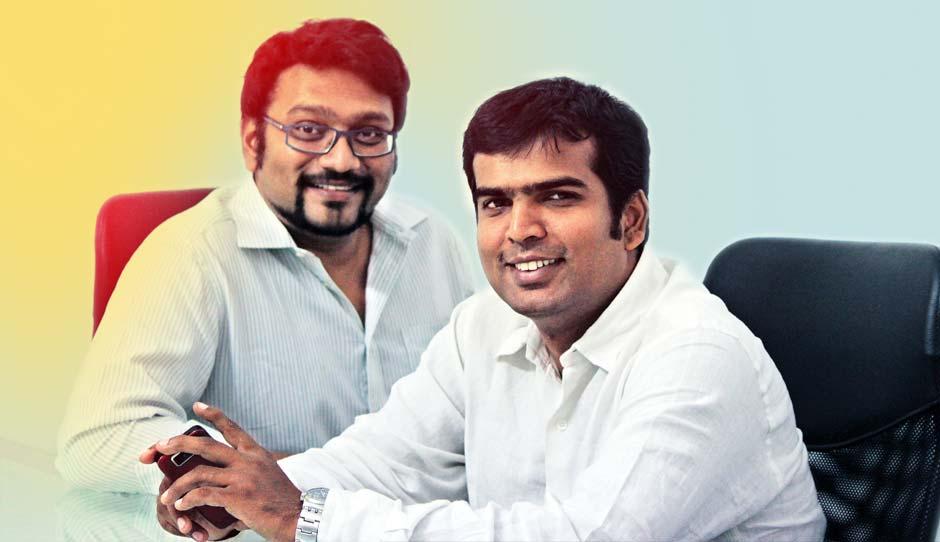Taxi For Sure: “Hot Seat” to an Open Culture
- BY Sonal Khetarpal
 In People
In People 11500
11500 0
0

Aprameya Radhakrishna and Raghunandan G want their taxi aggregating marketplace company, Taxi For Sure, to reflect the values they cherish as individuals. Their effort to build a company culture has resulted in a surprisingly detailed 76-page culture document. Taxi For Sure is a young company (they launched in February 2011) so the jury is out on whether they are able to implement, embed and sustain these lofty ambitions. But it’s impossible to doubt that they’ve started off very well. Let’s take a ride through their culture roadmap—where it started, and how it’s being powered.
What they’re out to build:
Three key values—transparency, integrity and respect for every individual—are the pillars of the culture Radhakrishna and Raghunandan aim to build their company Taxi For Sure on. The duo says these values have been ingrained in them through their childhood. “We both belong to south Indian middle class families where being disrespectful is frowned upon,” says Raghunandan. They wanted their company to reflect those values.
How they’re implementing it:
Taxi For Sure received funding of $10 million from Bessemer Venture Partners in April 2014. They plan to use the fund to expand to 20 new cities over the next 18 months. As they expand their company’s footprint and hire nearly 600 people over the next year, the co-founders wanted to nail down a culture that can expand uniformly to all their offices. “As we grow bigger, the founding team won’t be physically present so it was important for us to delineate our company’s values clearly,” says Raghunandan.
Transparency, integrity and respect are three key values that the Taxi For Sure founders want ingrained in their company culture.
One of the tricks that has worked for the 400 people across three offices in Delhi, Bangalore and Chennai when it comes to building a transparent culture is free seating, or what is known as “hot seating” in start-up management lingo. Raghunandan says the benefit of this simple idea has been substantial. “We don’t have designated seating. Everyone just sits wherever they find space. Thanks to this, I sit with a new set of people every day.” It has broken the silos of departments, management bands and seniority, and enabled company-wide bonding and interactivity.
Chance encounters aside, Raghunandan says sometimes he’s happy to force people to participate and interact. Every Tuesday evening, the company organises a quiz, a game of dumb charades or a photography contest. “On some days, we literally force people to get up and participate in the games we’re playing.” For those who don’t enjoy board or indoor games, there are cricket and football matches on Tuesday mornings. “Everyone has to participate in one of the activities so that each week they team up with, and meet new people.”
Take a look at this video of Taxi For Sure employees dancing to Will Pharrell's "Happy" to get a sneak peak into the company's culture
This emphasis on communication, across hierarchies and functions, helps to inculcate the value of transparency in the company. That it’s working is evident in the company’s town halls and meetings, Radhakrishna adds. And, roughly 12 direct emails they get from people every month by way of feedback and ideas.
To encourage feedback from people who might not be comfortable in direct mails, there is also an anonymous whistleblower system in their office called "Dhwani". If any employee has any suggestion or feedback, they can anonymously send an email to the management. Or, they can even anonymously drop a note in the Dhwani boxes placed in quiet corners where there are no CCTV cameras. This might be a practice that is in place in most of the offices but what the duo say they ensure is they try to act upon it immediately. And, then they send a mail to the entire team informing that the request they got from Dhwani has been met. This small practice, they say makes people feel that we listen to them, take their feedback seriously and act upon it too. That, Radhakrishna says, is the biggest motivator for people to speak up.
This has also kept the number of feedback they get from Dhwani high. On average, they get six to seven requests every month, informs Raghunandan. They have received several suggestions to improve their office infrastructure. There were several complaints that people didn’t like the coffee vending machine and wanted the office boy to make coffee for them. Taxi For Sure implemented that change within a week. There were also suggestions like getting a TV room and a separate recreation room with table tennis and foosball table. The founders couldn’t meet this demand then. Their previous office wasn’t spacious enough. But, as they have recently moved to a bigger office in Bangalore two months back, they have earmarked space for such activities.
On some days, we literally force people to get up and participate in the games we’re playing." - Raghunandan
Suggestions on Dhwani also lead to serious business change. Last year, somebody wrote in from their Delhi office to complain against the branch head. This particular branch head, Raghunandan says, was very rude to the call centre executives and expected them to stand up to greet every time he entered the office. Since his behaviour breached the value of respect of people, Raghunandan and Radhakrishna, went to the Delhi office to investigate. The manager’s explanation—that this sort of behaviour was the norm for Delhi—didn’t cut much ice with the co-founders. “He refused to mend his ways so we let him go the very day same. Irrespective of his seniority and dependency we had on him, we didn’t hesitate to ask him to leave,” adds Radhakrishna.
It was after this incident that they decided to bring the entire senior management team of the new branches (generally its top five to six people) to the corporate office in Bangalore for two to three weeks to get a sense of the company culture. Earlier they would get only the branch heads from different cities to spend time in Bangalore, but after the Delhi incident they realised that putting the entire responsibility to drive the company’s culture on one person was not a workable idea. “People watch and form judgements on the basis of what leaders do and how they behave, not what they say and pitch. The only way to effectively implement the cultural values in the organisation is for its founders and top 10-15 leaders to demonstrate these values every day, in whatever they do—whether it is a casual interaction, a meeting or a formal interview, similarly in all the offices,” adds Radhakrishna.




























Add new comment